Did you find this article helpful for what you want to achieve, learn, or to expand your possibilities? Share your feelings with our editorial team.
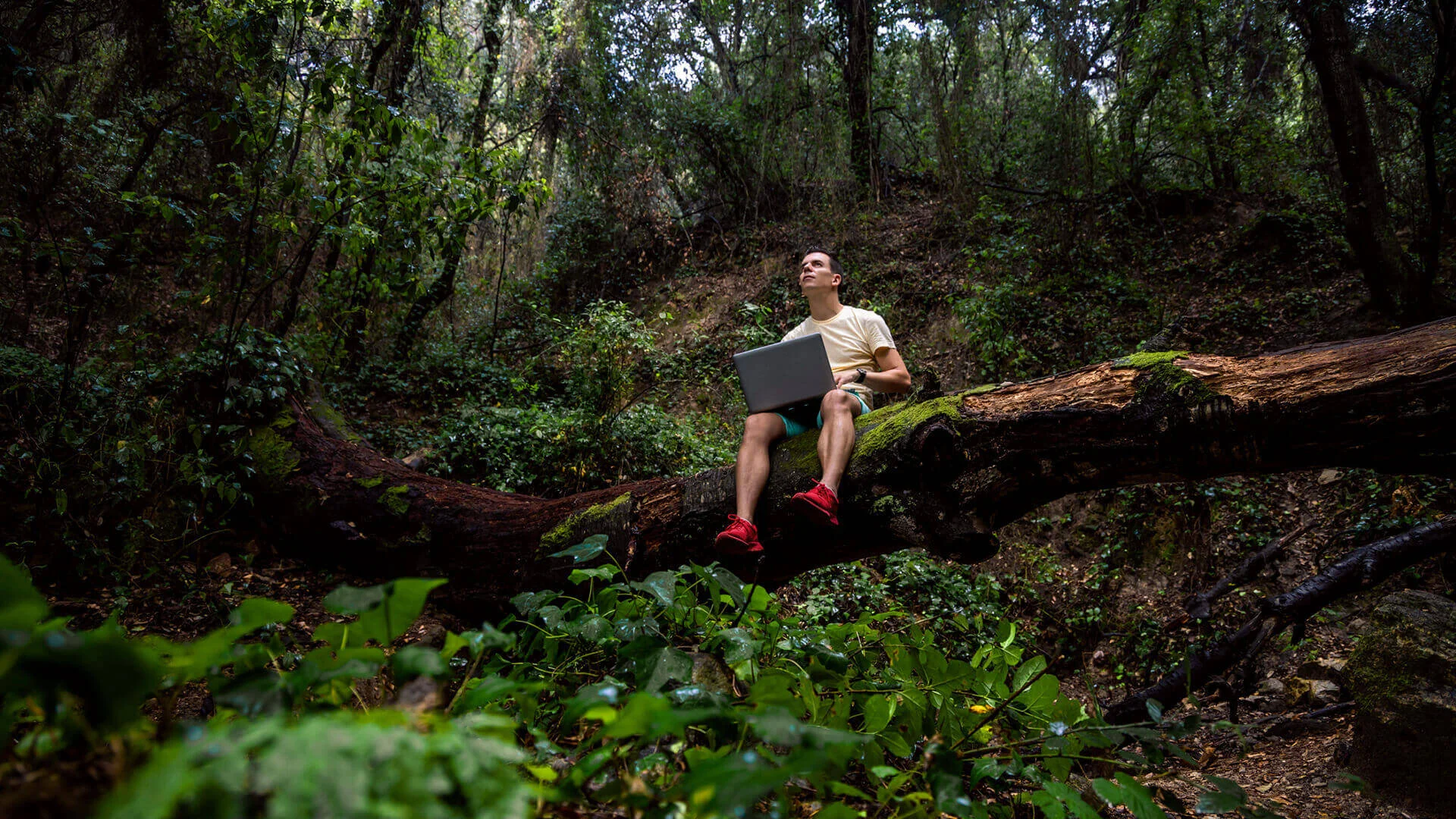

Sep 14, 2020
VISION & IDEAIt is not always good to leave it aloneWe can care for the forest with mobility technology
A new approach for “forest data collection” that may help curb global warming
Many people grow and care for plants in their gardens, balconies, and rooms. We make sure that they are well watered, we trim them, and we remove withered flowers. Plants bring us joy by bearing fruit and beautiful flowers, almost as if they are returning the favor. There is no question that people and plants interact with each other.
Forests play an important role on our planet, creating soil, storing rainwater, absorbing pollutants in the atmosphere, and providing a natural habitat for many living things. Trees occupy about 70% of Japan’s land area. Have you thought about caring for forests?
When we think of forests, we tend to think it is better to leave them untouched. In fact, it is not always good to leave it all up to nature. Planted forests in particular require proper care, just like plants grown at home. Did you know that without human intervention in the care of forests, landslides would be more likely to occur, the occurrence of hay fever would increase, and various aspects of daily life could be affected?
Contents of this article
What will happen if forests are not maintained well?

Forest maintenance includes “undercutting” or the removal of weeds and trees to give saplings room to grow, and “thinning” or the cutting down of some trees to reduce density and prevent overgrowth.
What would happen without “undercutting” or “thinning”? Sunlight would not be able to reach the ground, tree roots and plants would not be able to grow, resulting in poor soil quality. Barren soil prevents roots from absorbing water during heavy rains or typhoons, thus increasing the risk of natural disasters such as landslides.
Caring for forests also has an impact on the occurrence of hay fever, which currently affects many people who are allergic to pollen. Cedar trees that are commonly found in planted forests in Japan tend to grow dense and thick, releasing large amounts of pollen as they compete for survival. But with proper maintenance, cedar forests can be prevented from causing an increase in hay fever.
In addition, when forests are not properly maintained, their capacity to absorb CO2 decreases. Therefore, from the perspective of global environmental protection, forest maintenance is very important.
Although people understand the importance of forests and the necessity to care for them, many forests are still not well maintained. The reason is that forestry industry, which is responsible for forest development, is declining.
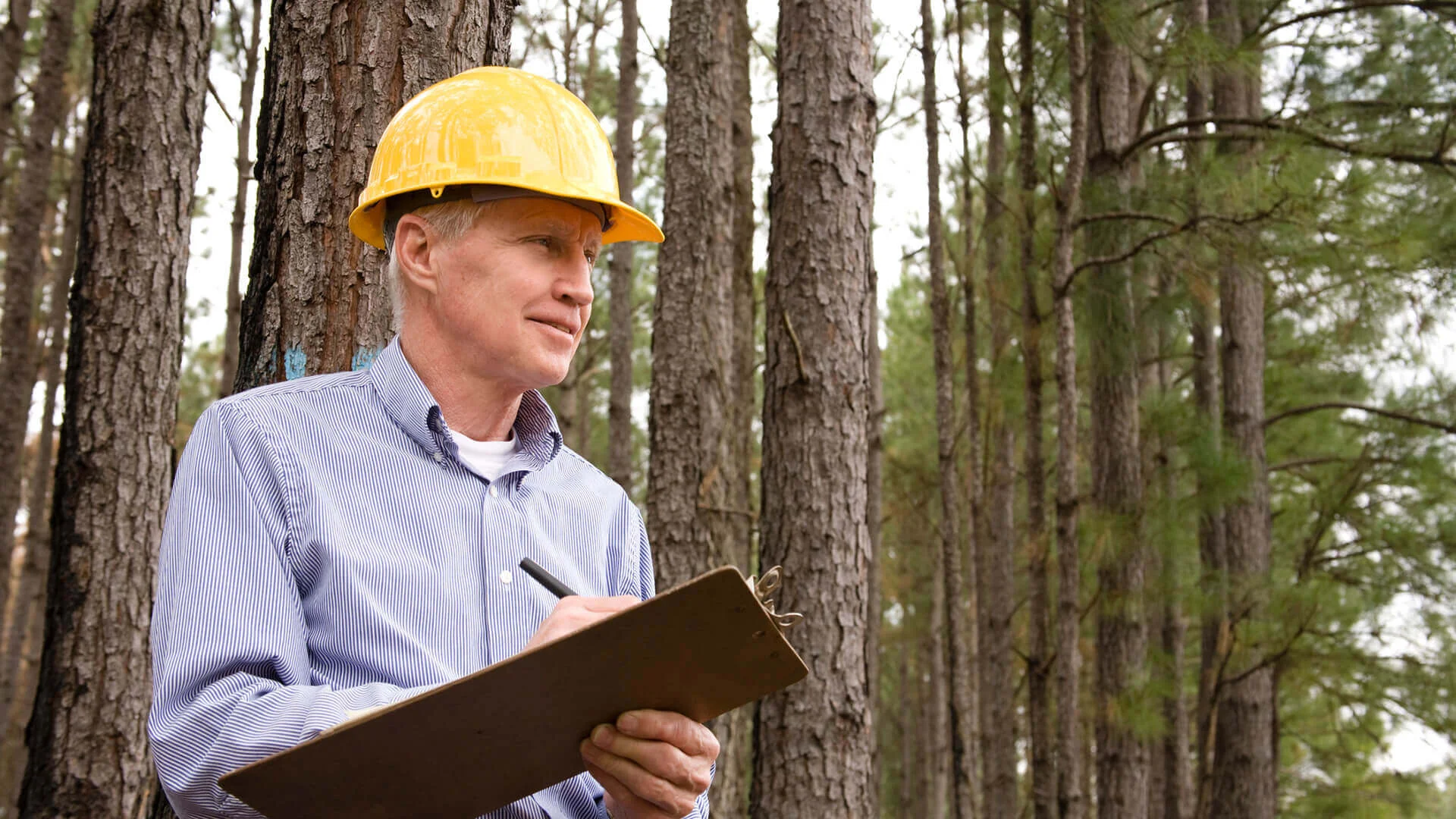
The growth of an industry begins to decline when its workforce is not sufficient. The forestry industry’s workforce is aging and there is a shortage of potential successors to carry their work forward. When we asked the Forest Association about the reasons for this current situation, they cited two reasons: first, that it is difficult to pass down forestry know-how; and second, that the management system is not digitalized.
In forestry, there is a tendency for people carry out tasks based on knowledge gained through experience. Since the know-how depends on the knowledge and skills of individuals, it is difficult to transfer. In addition, even though mountains are constantly changing their shapes, the management of forest information gathered on the ground is still documented on paper. Thus, information cannot be shared in real time.
Furthermore, forestry operations generally take a lot of time, and the risk of on-the-job mortality is 10 times higher than that of road accidents. Finally, most forestry management organization is done small scale with low productivity.
In order for forestry to develop in the future, it is necessary to build a low-cost and highly efficient work system that meets local conditions. These goals can only be achieved through much needed solutions to support forestry.
Applying mobility technology in forest management to prevent natural disasters
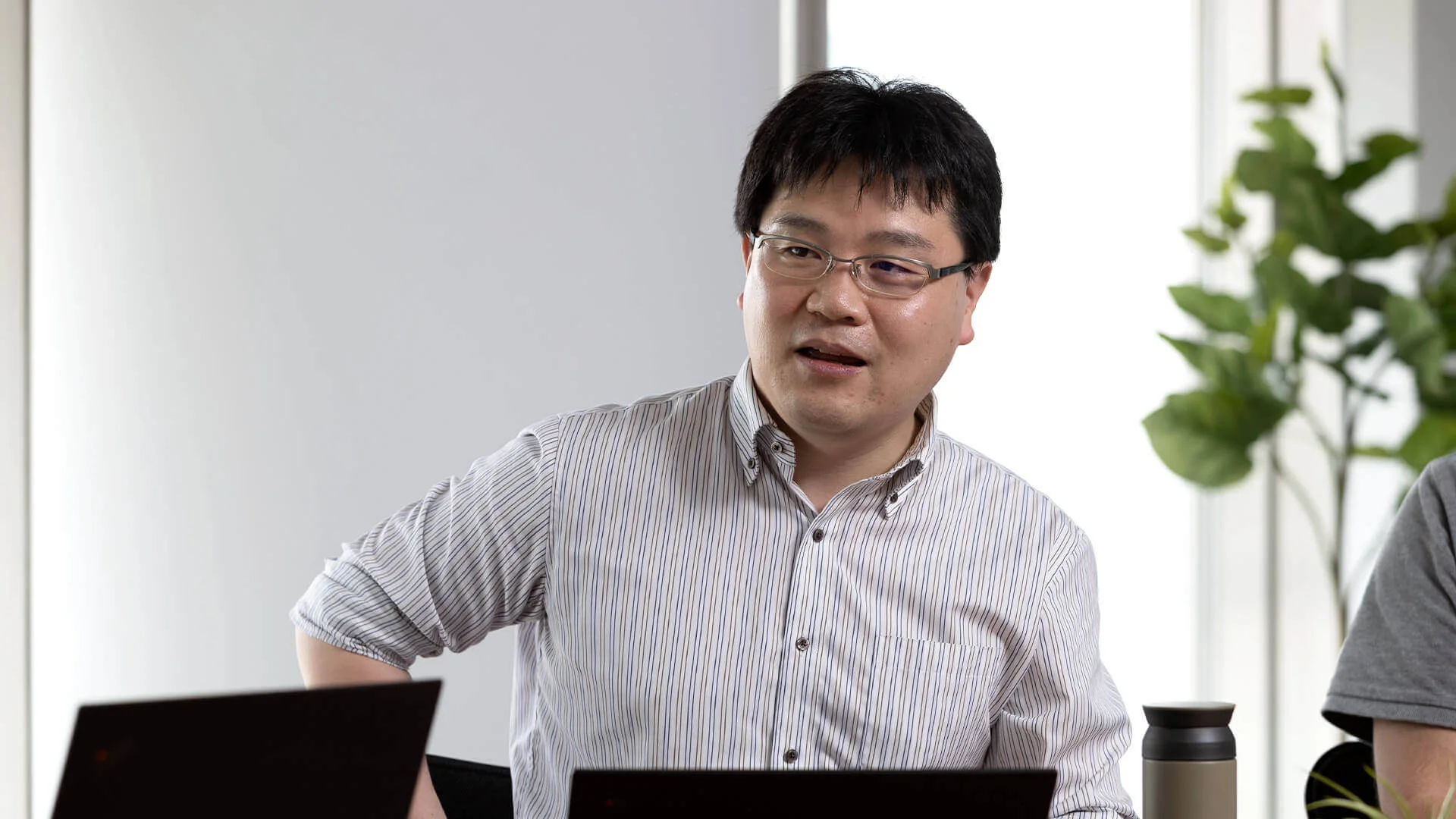
At DENSO, a volunteer project team is working to resolve these forest conservation issues.
Imura of Electronics Engineering Division thought, “We need a system to protect forests efficiently and safely.” With this in mind Imura launched the “Treasure Mountain Project”, an initiative designed to actively protect forests. This is a safe and secure operation support service focusing on forest measurement.
His family were engaged in forestry from the time his great-grandparents settled in Hokkaido, until they closed their business down in 1965. The forests owned by the great-grandparents are still managed by their families.
In 2016, his parents’ house was hit by Typhoon No.10. Around the same time, driftwood damage was caused by heavy rain in northern Kyushu. That is when he came up with the idea that if we could use technology to manage forests, we could prevent disasters.
The basis for “Treasure Mountain Project” was a theme chosen by Imura for DENSO Innovation Ventures (“DIVE”) 2018, a company contest aimed at generating new business ideas for DENSO while encouraging the development of human resources.
Fujii and Kato drafted the plan and the project started. In the process of formulating the plan, they interviewed the Forest Association and lumber companies to better understand the problems of people working on the site. “I felt the expectation for DENSO to tackle these problems, and I was convinced of the necessity of the forest management solution,” Imura said.
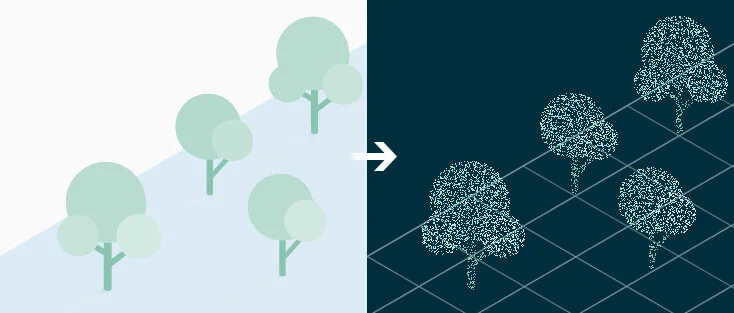
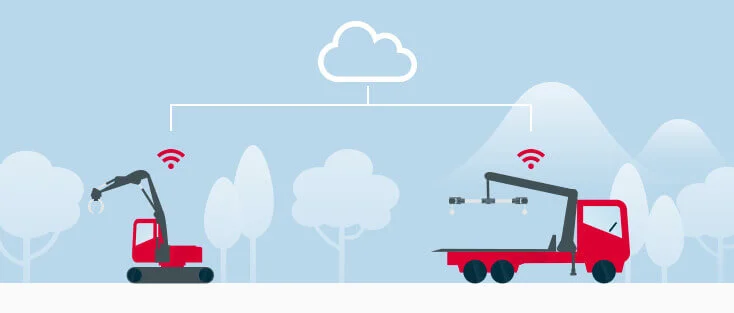
Based on the opinions of people working in the forestry field, they were able to summarize that the problems were associated with the inefficiency of forest management and the fact that the technology depended largely on the skills and knowledge of individuals. The project team outlined the following two steps as they considered ways to utilize DENSO's technology.
1. Data collection of forest information
2. Automation of forest management operations
“First of all, we found out that the challenge was to compile data on forest information and tasks history. DENSO, which had been developing technology for autonomous driving, had know-how on sensing the surrounding environment, and we thought that we could use these technologies to solve problems in forest measurement. By applying DENSO's expertise in automotive sensing and electrification technologies, we developed a solution for converting the data on forest information and tasks history.” (Imura)
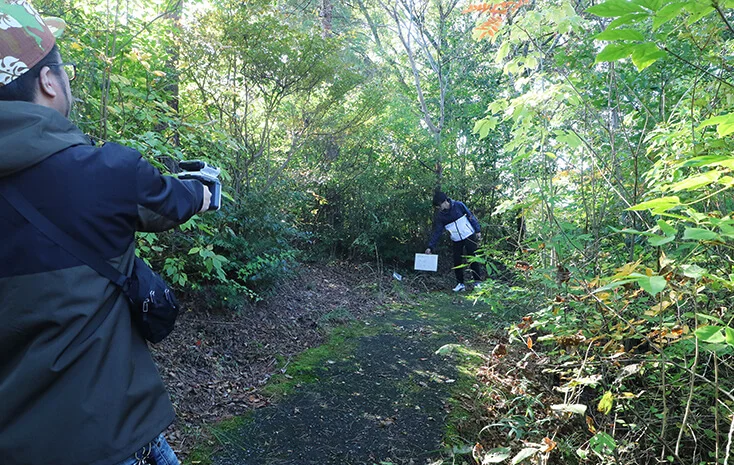
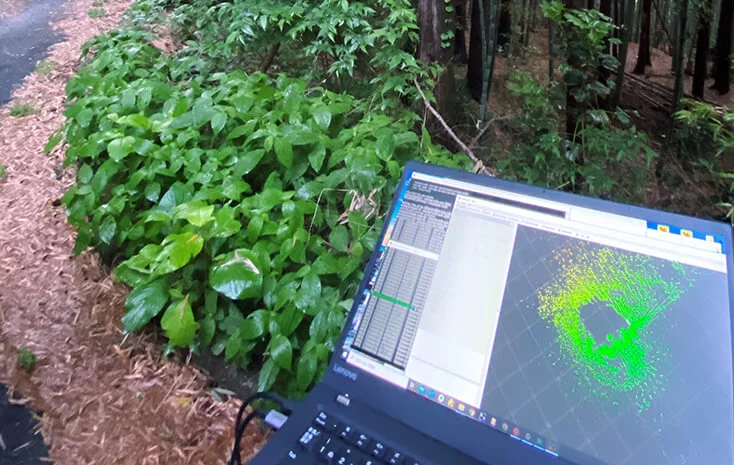
“We are working to obtain data from within forests, rather than using conventional methods such as helicopters to measure forests from the sky. The concept is to collect data while driving a small automated vehicle inside forests, utilizing the technology to measure forests without hitting trees or other obstacles. It is more accurate than measuring from the sky. Since we can also measure the thickness of the trees at the same time, it could help us select trees to cut for thinning.”
These ideas from the “Treasure Mountain Project” were developed by focusing on the construction of solutions without depending on technologies. Fujii, a key member of the project, says the forest could be transformed into a treasure mountain by collecting data.

“After conducting multiple surveys among field workers to fully understand their opinions, we learned that the core of our business was the collection of data on forests. The development of data collection and the acquisition of a wide range of forest information could lead to the realization of all kinds of ideas related to forests, such as searching for Matsutake mushrooms and edible wild plants. There is a possibility that a mountain that has been untouched now becomes a “treasure mountain.”
If we succeed in the collection of data on forests, we can see the possibility of work process automation, which is our next step. Fujii further explains, “If automatic operation of construction equipment becomes possible in the future, it will dramatically improve safety and increase the extent of forests that can be managed. Data collection is essential for automation. To this end, we are working on the data collection on forests”.
In 2020, a team from "Treasure Mountain Project" launched a project to measure forests using mobility technology. They are developing the project as a business while reporting to management.
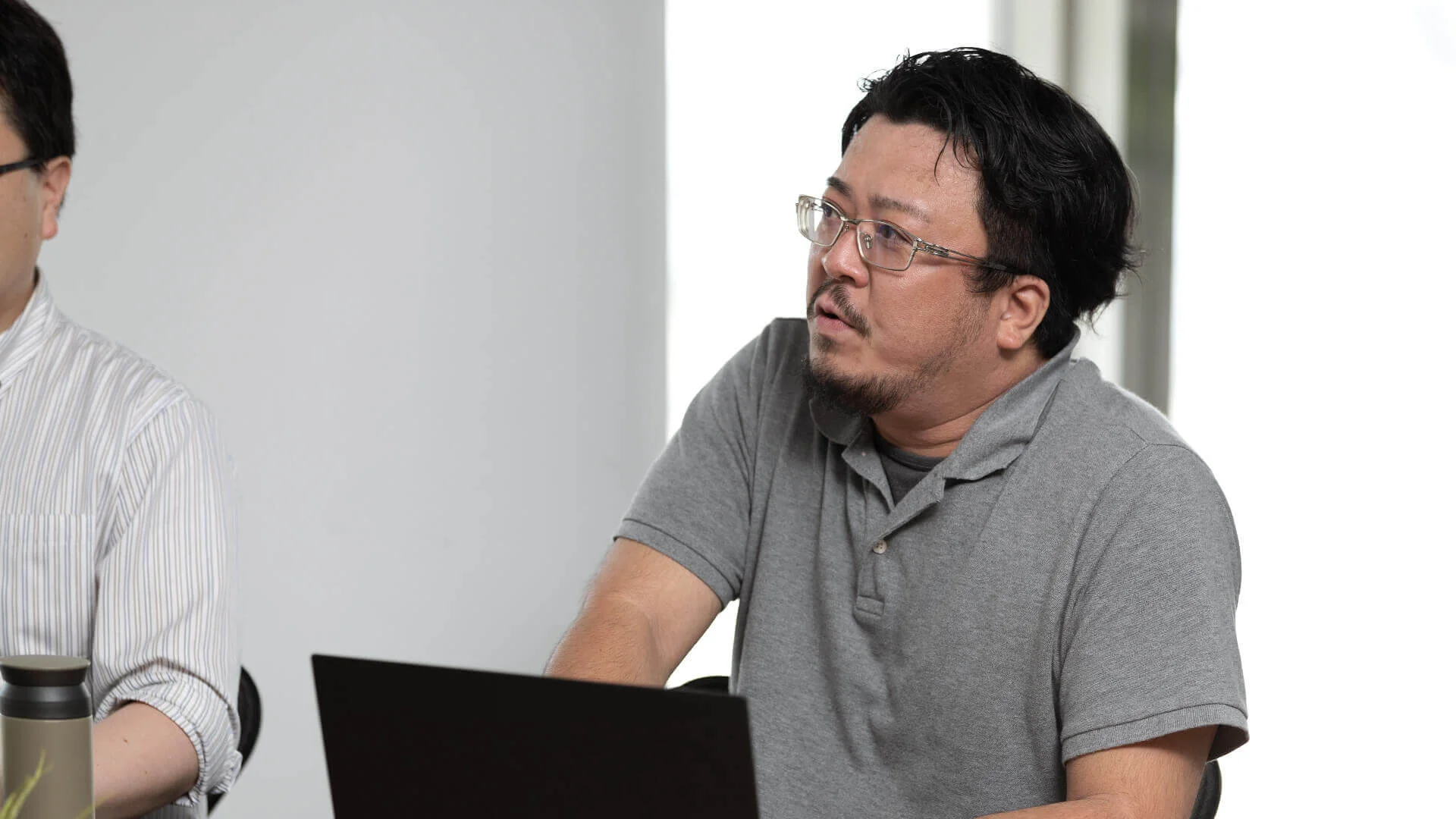
“By working on the project a change has happened to me”, Kato said. “By participating in this project, I came to understand that global warming is actually progressing. Japan has not maintained forests well so far. This influences the occurrence of natural disasters. Through this project, I became aware of how our actions affect the environment and disasters."
Creating a safe and secure mobility society through forest management
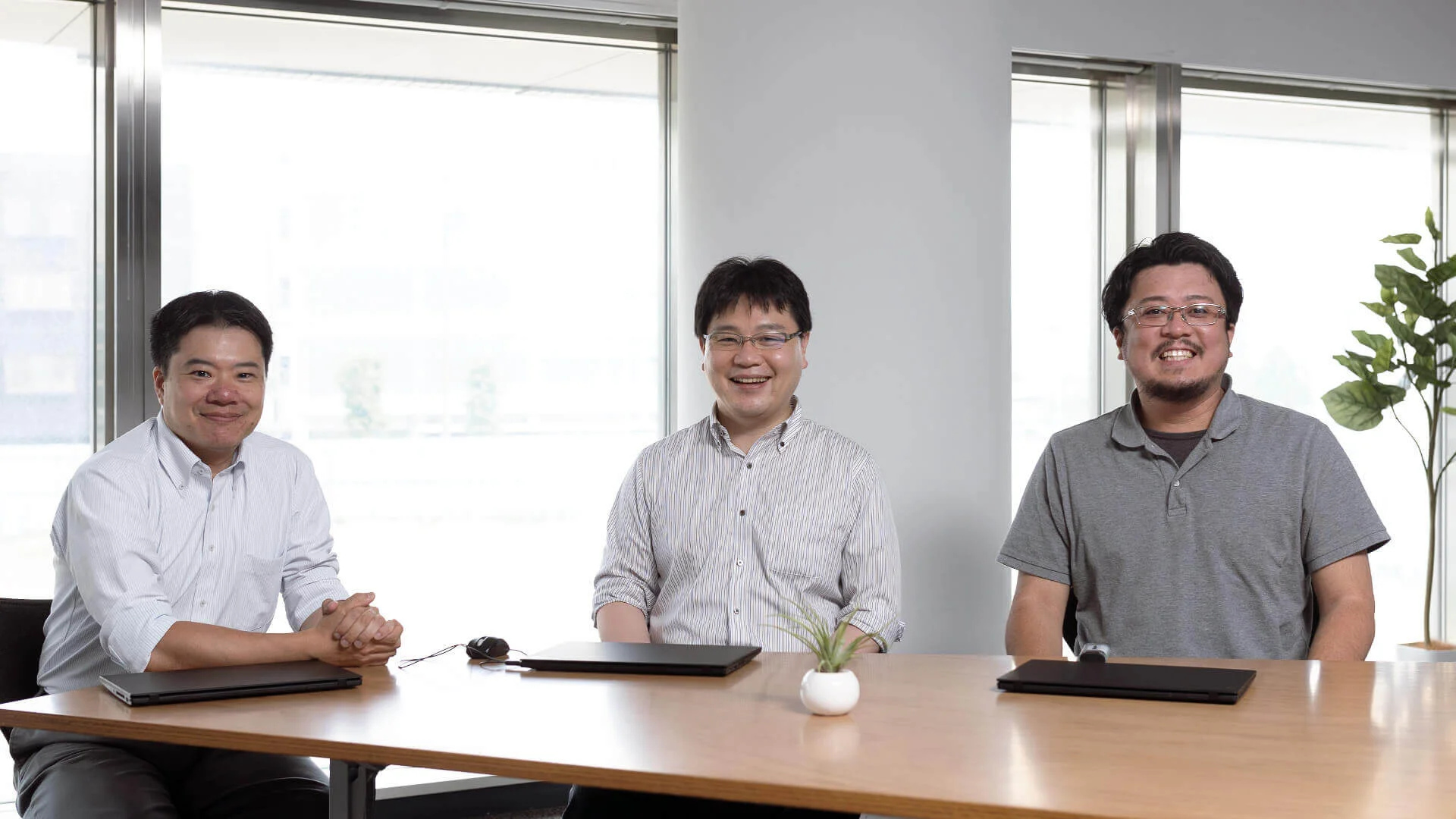
Imura describes his thoughts on the project.
"My great-grandfather planted trees in the mountains to prevent future generations from experiencing difficulties. Today, such planted forests are seen everywhere in Japan, and the fact that they are not properly cared for - against the wishes of ancestors - is hurting people now. We need to find solutions that support forest management and realize their wishes in the future."
The “Treasure Mountain Project” aims to protect forests not just in Japan, but throughout the entire planet. As climate change is accelerated by global warming, mountain disasters caused by extreme weather changes are damaging our transportation infrastructure. Therefore, protecting forests and the global environment will lead to the protection of lives.
DENSO is developing innovations in mobility that will enable people to move freely, while addressing environmental conservation at the same time. Vehicles emit CO2 while driving as well as during their production process. As a company whose core business serves the automotive industry, we are committed to doing our best to protect the global environment and maximize our contribution to society.
COMMENT
Changing your "Can'ts" into "Cans"
Where Knowledge and People Gather.



